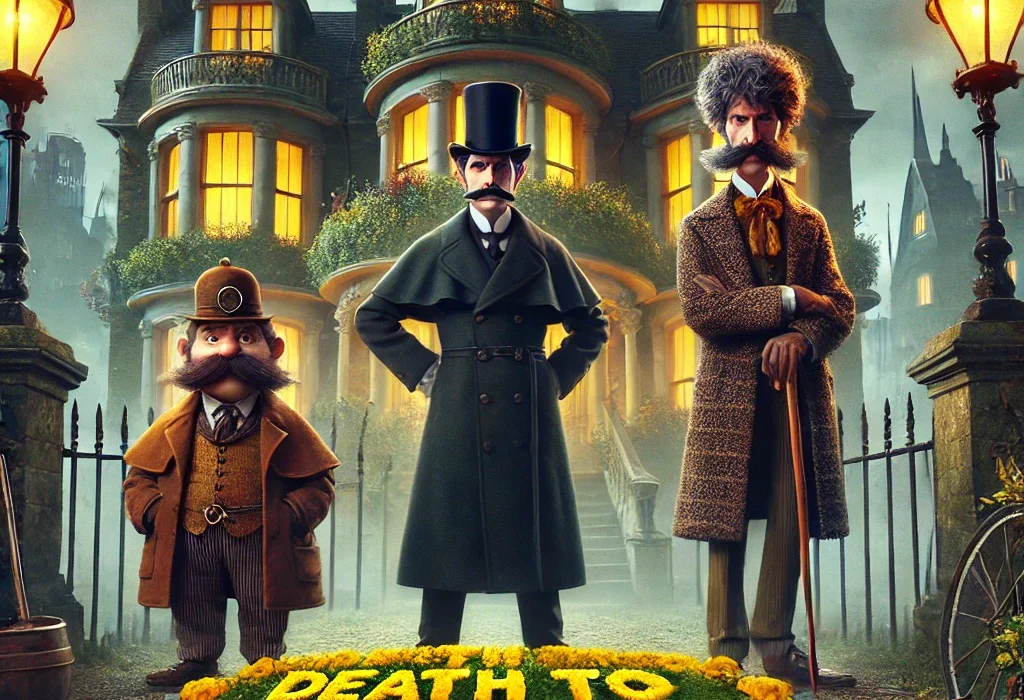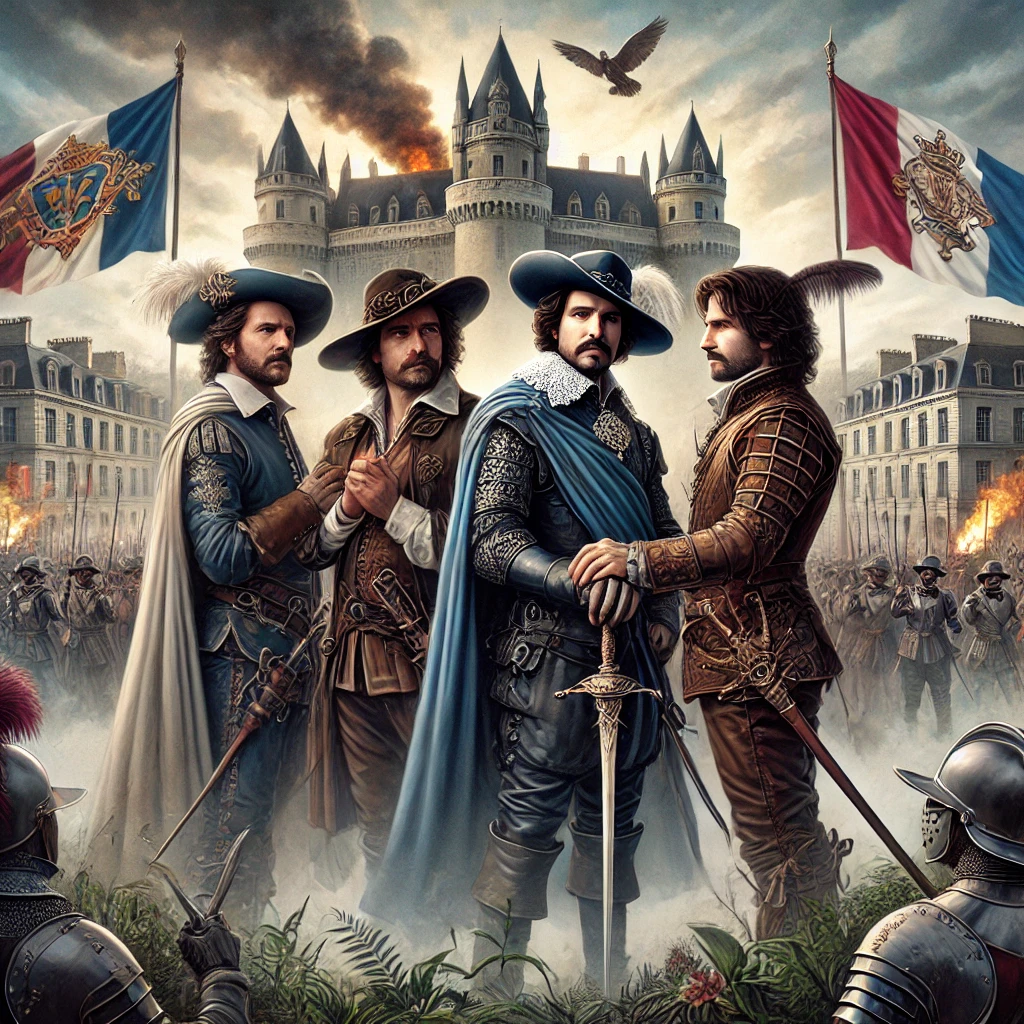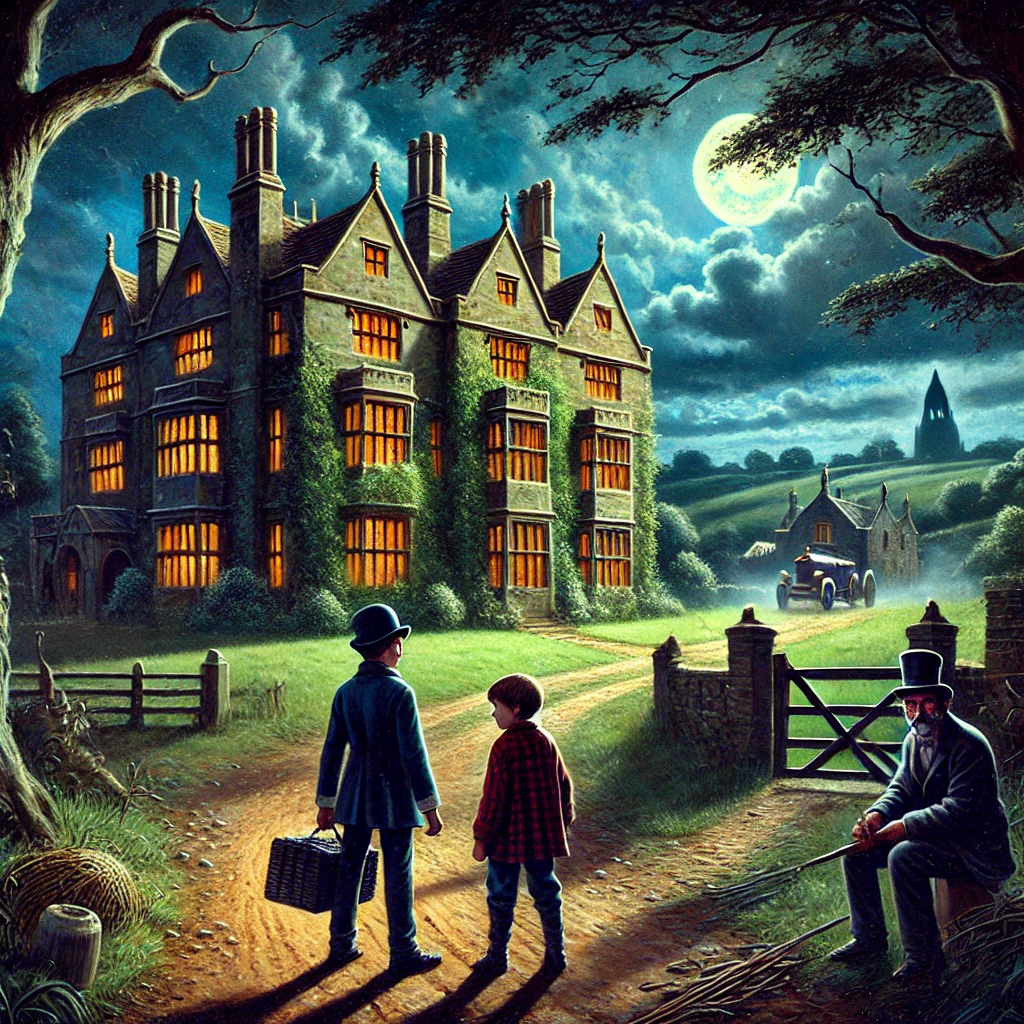“The Club of Queer Trades” by Gilbert Keith Chesterton, published in 1905, is a collection of interconnected detective stories that blend mystery with Chesterton’s signature wit and philosophical musings. The tales revolve around a unique club whose members have all invented and successfully established their own peculiar professions. The stories are narrated by Charlie Swinburne, who is joined by his brother Rupert and their friend, the enigmatic and eccentric former judge, Basil Grant.
Plot Summary
The Tremendous Adventures of Major Brown
Major Brown, a retired soldier with a fondness for gardening, finds his peaceful life disrupted in a most bizarre manner. While admiring a vendor’s flowers, the Major is persuaded to climb a wall to see a display of yellow pansies. To his astonishment, he finds the pansies arranged to spell out “Death to Major Brown” in the middle of the garden. The sudden and inexplicable threat shakes him to his core. Determined to uncover the mystery, Major Brown seeks the help of Basil Grant, a former judge turned detective, and his practical brother Rupert.
The trio delves into the enigma, tracing the strange events back to the Adventure and Romance Agency. This peculiar agency specializes in creating thrilling and perilous situations for its clients, who seek to escape the monotony of everyday life. Major Brown, it turns out, has been mistaken for his home’s previous owner, Mr. Gurney-Brown, a subscriber to the agency’s services. The Major becomes an unwitting participant in an elaborate game of danger and intrigue designed for someone else. The agency’s intricate plots, involving actors and staged scenarios, are revealed, and Major Brown, despite the chaos, finds a certain exhilaration in the unexpected adventure.
The Painful Fall of a Great Reputation
While riding a tramcar through North London, Basil Grant and Charlie Swinburne encounter a man who immediately strikes Basil as the most wicked in England. This man, with his finely groomed appearance and air of arrogance, captures Basil’s intuition. Determined to uncover the truth, they follow him through the foggy streets to Berkeley Square. There, the man enters the house of Lord Beaumont, a philanthropist known for his gatherings of intellectuals and eccentrics.
Inside, Basil and Charlie meet various characters, including Sir Walter Cholmondeliegh, who is outraged by the modern wit, Wimpole, whose sharp repartees seem to delight and offend in equal measure. The evening’s events unfold in a series of debates and confrontations, revealing the complexities of judging character based on superficial impressions. Basil’s immediate suspicion of the man is tested as the layers of social interaction and personal biases are peeled away, highlighting the themes of appearance versus reality.
The Awful Reason of the Vicar’s Visit
Reverend Ellis Shorter, a vicar known for his integrity, finds himself in a compromising situation after visiting an establishment of dubious reputation. Fearing for his reputation, he turns to Basil Grant for assistance. Basil, with his keen sense of justice and understanding of human nature, uncovers that Reverend Shorter’s visit was linked to the Adventure and Romance Agency. The agency had orchestrated a scenario meant to challenge and test the vicar, who had unknowingly become part of their elaborate game.
As Basil pieces together the events, it becomes clear that Reverend Shorter was targeted due to a mix-up similar to Major Brown’s. The vicar’s genuine distress and Basil’s methodical investigation highlight the absurdity and potential harm of the agency’s schemes. In the end, the vicar’s name is cleared, and he gains a deeper appreciation for the complexities of moral judgments and human fallibility.
The Singular Speculation of the House-Agent
Charlie Swinburne grows suspicious of a house agent named Northover, whose properties come with peculiar conditions. Intrigued, Charlie, along with Basil and Rupert, investigates further and discovers that Northover’s trade involves creating homes that are perfect replicas of famous literary settings. These houses cater to clients who wish to live in the world of their favorite novels, complete with all the details and atmospheres described in the books.
The investigation leads them to a house modeled after a Victorian detective’s office, complete with secret compartments and hidden clues. Northover’s innovation impresses the trio, as they realize the depth of imagination and effort put into these recreations. This discovery not only sheds light on Northover’s unique business but also celebrates the power of literature and the creative possibilities within everyday professions.
The Noticeable Conduct of Professor Chadd
Professor Chadd, a scientist with a reputation for eccentricity, becomes the focus of Basil Grant’s curiosity when his peculiar experiments and public behavior attract attention. Rumors abound of Chadd’s wild inventions and bizarre demonstrations. Basil, Rupert, and Charlie attend one of Chadd’s presentations, expecting to witness scientific marvels. Instead, they find that Chadd’s so-called experiments are elaborate theatrical performances, designed to entertain and provoke thought.
The professor’s true talent lies in his ability to blend reality with illusion, creating spectacles that challenge the audience’s perceptions. His “experiments” turn out to be performances that explore philosophical ideas through dramatic means. This revelation underscores the themes of deception and the fine line between reality and performance, highlighting Chesterton’s fascination with the theatricality of life.
The Eccentric Seclusion of the Old Lady
An old lady’s mysterious seclusion and her connection to the Club of Queer Trades intrigue Basil, Rupert, and Charlie. They discover that she runs a unique business providing structured solitude for clients seeking respite from the world. Her service offers peaceful retreats where individuals can reflect and rejuvenate away from the hustle and bustle of modern life.
The old lady’s trade is a commentary on the pressures of contemporary society and the need for personal space. Through their interaction with her, the trio gains insights into the importance of balance between social engagement and solitude. Her business highlights the universal human need for tranquility and the value of creating spaces for contemplation in a fast-paced world.
Main Characters
Basil Grant: A former judge turned mystic and detective, Basil is the intellectual and philosophical anchor of the stories. His sharp mind and unconventional methods often reveal deeper truths.
Rupert Grant: Basil’s energetic and practical brother, Rupert is a private detective whose straightforward approach complements Basil’s abstract thinking.
Charlie Swinburne: The narrator and chronicler of the adventures, Charlie provides a grounded perspective and serves as the reader’s lens into the eccentric world of the Club of Queer Trades.
Major Brown: A retired soldier whose encounter with the Adventure and Romance Agency sets off a chain of bizarre events.
Lord Beaumont: A well-meaning but eccentric philosopher and philanthropist whose gatherings attract a wide range of characters.
Theme
Innovation and Eccentricity: Each story revolves around the creation of a unique profession, celebrating human creativity and the unconventional paths people take.
Appearance vs. Reality: The narratives frequently challenge perceptions, revealing deeper truths beneath surface impressions, as seen in Basil’s intuitive judgments.
Adventure and Monotony: The desire for adventure amidst the mundanity of everyday life is a recurring motif, highlighting a universal human longing for excitement and meaning.
Writing Style and Tone
Chesterton’s writing in “The Club of Queer Trades” is characterized by a playful and witty tone that blends humor with philosophical insights. His use of paradoxes and clever dialogue keeps readers engaged while encouraging them to ponder deeper themes. The narrative style is conversational and accessible, with vivid descriptions and a touch of whimsy that brings the eccentric characters and their peculiar trades to life. Chesterton’s ability to turn ordinary situations into extraordinary adventures showcases his unique perspective on life and his belief in the inherent wonder of the world.
We hope this summary has sparked your interest and would appreciate you following Celsius 233 on social media:
There’s a treasure trove of other fascinating book summaries waiting for you. Check out our collection of stories that inspire, thrill, and provoke thought, just like this one by checking out the Book Shelf or the Library
Remember, while our summaries capture the essence, they can never replace the full experience of reading the book. If this summary intrigued you, consider diving into the complete story – buy the book and immerse yourself in the author’s original work.
If you want to request a book summary, click here.
When Saurabh is not working/watching football/reading books/traveling, you can reach him via Twitter/X, LinkedIn, or Threads
Restart reading!








